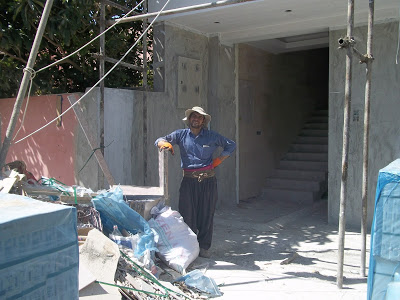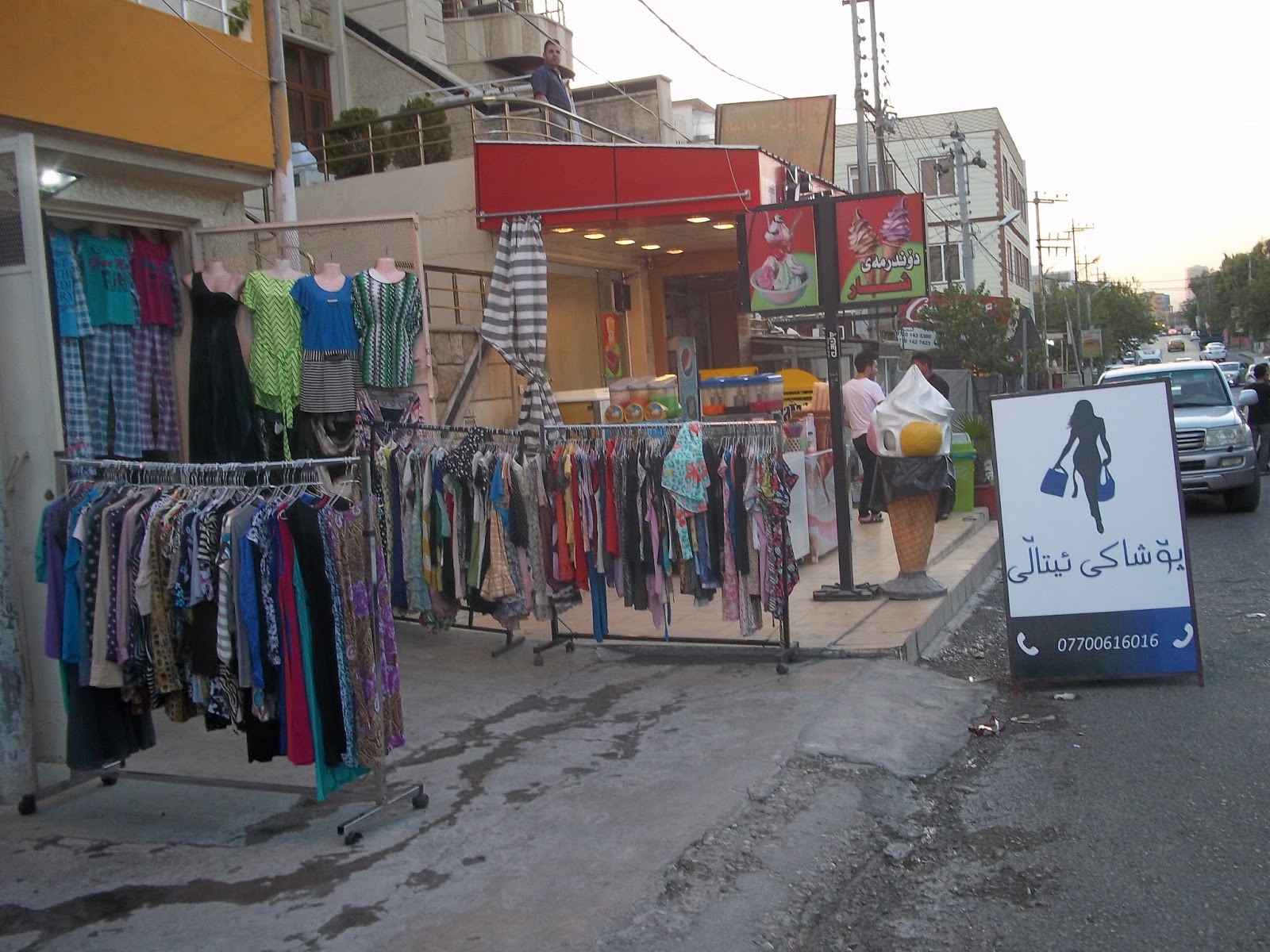CPTnet
26 July 2016
IRAQI KURDISTAN:
War looms at their borders, but life goes on
by
Peggy Gish
 |
| A construction worker in Sulaymaniyah, Kurdistan. Photo by: Peggy Gish |
Even in the 110 F.
heat, Kamal* works daily as part of a construction crew, building a
several-story-high building in our residential neighborhood of the city of Suleimani.
He stopped a moment, in the hot sun, to pose for my photo, not minding
the short break from his work.
 |
Every day, early morning
until late in the evening, Shorsh* and a crew of three other men slap out dough
into large thin discs, bake them, and lay them out on an open table.
Eight large rounds of bread cost a little less than a U.S. dollar.
People, of all ages, mill around his shop, buying fresh bread for their
families.
A few doors away, a
clothing shop opens only in the evenings, when there is some relief from the
intense heat and more people amble along the street to shop. A few will also
stop at the ice cream shop next door. Others will visit a grocery shop where
Rebaz,* his wife, or any of their three older children, greet me and other
customers with a smile and help us find what we need.
Life is more secure and
stable in the Kurdish region, compared to other areas of Iraq. Yet even
here, the daily life for the average Iraqi Kurd is challenged by general social
and economic difficulties, poverty, and the needs of displaced persons coming
in from other areas of the country. Even public school teachers and lower
level government workers have been hit economically. Most of them, except
for the Peshmerga, (Kurdish military forces), have in the past year, received
just a fraction or their salaries, or none at all, for months at a time. In an
economy weakened by massive corruption and supported by oil revenues, the drop
in global oil prices has certainly had an effect on government ability to pay
their workers. But it is more than that. Because the Kurdish region has
been selling and keeping the profits from their own oil sales on the
international market, the Iraqi Central government in Baghdad no longer gives
the Kurdistan Regional Government their previous allotment of 17% of Iraq’s oil
revenues.
 |
| Clothing store and ice cream shop in Sulaimani, Kurdistan. Photo by: Peggy Gish |
People here are keenly aware of the fighting going on with ISIS (locally
called, “Daesh”) at the southern borders of their Kurdish region, and have not
dismissed the possibility of the violence coming into their communities.
The closest unit of Daesh forces to Suleimani is a two-hour drive away,
in an area just south of Kirkuk. Many families have members who are on
active duty with the Peshmerga, maintaining the protective border from Daesh
that extends more than 200 miles across northern Iraq—from the city of Sinjar,
near the Syrian border, to the edges of the city of Kirkuk.
In spite of their
concerns about the fighting and what that will mean for the future of Iraq and
Iraqi Kurdistan, and in spite of the daily economic troubles, people find time
to welcome us graciously into their lives. Children are born here and
loved by their families as they grow up with uncertain futures.
“Life goes on, because
it must,” a Kurdish friend told me. “What other choice do we have?”
*Names changed
|



